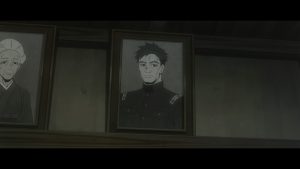 There are a lot of show ponies this anime season. Not just on the commercial side, but for a change in my little corner of the world too. Ever for someone with esoteric tastes like me, the table is pretty full. It’s so easy for a show like Mars Red to be overlooked, given its lack of headline-grabbing pedigree and easy commercial hooks. But this show is great, as far as I’m concerned. It does everything well and a few things (like art design, casting, and music) superlatively. I have no doubt it will continue to be largely ignored, but certainly not by me.
There are a lot of show ponies this anime season. Not just on the commercial side, but for a change in my little corner of the world too. Ever for someone with esoteric tastes like me, the table is pretty full. It’s so easy for a show like Mars Red to be overlooked, given its lack of headline-grabbing pedigree and easy commercial hooks. But this show is great, as far as I’m concerned. It does everything well and a few things (like art design, casting, and music) superlatively. I have no doubt it will continue to be largely ignored, but certainly not by me.
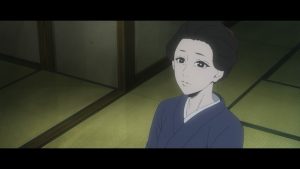 I liked – well, loved – Mars Red right from the beginning for the above reasons. But now that the underlying themes are starting to emerge I’m that much more engaged. It’s not easy to create anything original in the vampire genre these days. Even in anime it’s pretty played out, never mind generally. But I like where this going – a lot. Maeda was set up as the protagonist in the premiere, and pains were taken to show us his good points (which are real). But the truth is revealing something else as the story gets fleshes out, and Maeda’s role in it looks a lot different than it did two weeks ago.
I liked – well, loved – Mars Red right from the beginning for the above reasons. But now that the underlying themes are starting to emerge I’m that much more engaged. It’s not easy to create anything original in the vampire genre these days. Even in anime it’s pretty played out, never mind generally. But I like where this going – a lot. Maeda was set up as the protagonist in the premiere, and pains were taken to show us his good points (which are real). But the truth is revealing something else as the story gets fleshes out, and Maeda’s role in it looks a lot different than it did two weeks ago.
 Both the A-plot and the B-plot this week were superb, and they never really overlapped. We see what Gen. Nakajima is dealing with among the army top brass, and it’s not pretty. We aren’t in 1923 by coincidence here, and I don’t just mean the earthquake that will surely play a role. The rise of militarism is clearly happening, with the top dogs obsessed both with finding a way to outshine the navy and building a military that will allow Japan to be aggressive in the world. Nakajima is a true soldier and was apparently a very good one. He cares about his men and resents the idiocy of bureaucrats who don’t know what it feels like to lose in battle. And he has Maeda’s undying loyalty (he apparently saved his life on the battlefield).
Both the A-plot and the B-plot this week were superb, and they never really overlapped. We see what Gen. Nakajima is dealing with among the army top brass, and it’s not pretty. We aren’t in 1923 by coincidence here, and I don’t just mean the earthquake that will surely play a role. The rise of militarism is clearly happening, with the top dogs obsessed both with finding a way to outshine the navy and building a military that will allow Japan to be aggressive in the world. Nakajima is a true soldier and was apparently a very good one. He cares about his men and resents the idiocy of bureaucrats who don’t know what it feels like to lose in battle. And he has Maeda’s undying loyalty (he apparently saved his life on the battlefield).
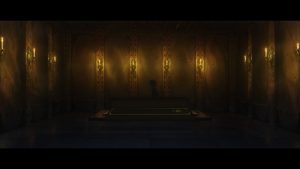 What could be simpler? Except it’s not, because it’s also increasingly clear that Nakajima’s ultimate motivation for the vampire units is to have disposable fodder so that the “real” soldiers won’t have to die. I won’t name names here but you could tell a story like this in black and white, making the “bad guys” cartoon villains, or you could do what Mars Red is doing – show both sides and paint with every shade on the palette. Nakajima clearly thinks he’s being compassionate and heroic, and it seems Maeda believes that too. But it’s growing more obvious that this isn’t the case.
What could be simpler? Except it’s not, because it’s also increasingly clear that Nakajima’s ultimate motivation for the vampire units is to have disposable fodder so that the “real” soldiers won’t have to die. I won’t name names here but you could tell a story like this in black and white, making the “bad guys” cartoon villains, or you could do what Mars Red is doing – show both sides and paint with every shade on the palette. Nakajima clearly thinks he’s being compassionate and heroic, and it seems Maeda believes that too. But it’s growing more obvious that this isn’t the case.
 I don’t know if I would go so far as to say “frailty, thy name is vampire” as Takeuchi does, but it’s certainly an interesting way of looking at things. Vampires are weak in some sense and what’s more, they’re very much individuals – no less than humans are, from what we can see. Yamagami and Kurusu seem as human as anyone in the cast, and Takeuchi considers his vampirism a gift as it will allow him to indulge his intellectual curiosity theoretically forever. Suwa is both the oldest and youngest in the unit, and he seems at peace with the role his physical abilities now allow him to perform.
I don’t know if I would go so far as to say “frailty, thy name is vampire” as Takeuchi does, but it’s certainly an interesting way of looking at things. Vampires are weak in some sense and what’s more, they’re very much individuals – no less than humans are, from what we can see. Yamagami and Kurusu seem as human as anyone in the cast, and Takeuchi considers his vampirism a gift as it will allow him to indulge his intellectual curiosity theoretically forever. Suwa is both the oldest and youngest in the unit, and he seems at peace with the role his physical abilities now allow him to perform.
 Yamagami has more or less commanded the screen ever since he was introduced, and Yamadera Kouichi is delivering a performance of tremendous depth and emotional heft. Having him agonize over missing his wife Tomiko (Ohara Sayaka, also great), and Kurusu scheme to use his A-class powers to help him was a brilliant and heartbreaking turn. It hammers home in no uncertain terms that these are the two most empathetic and “human” people in the cast, and just what a tragedy their existence has become. It was nice to see Yamagami get some peace by being able to talk to Tomiko briefly during Obon (beautifully presented in Asakusa, where I’ve observed it myself), but even more important was the way these events framed the main story.
Yamagami has more or less commanded the screen ever since he was introduced, and Yamadera Kouichi is delivering a performance of tremendous depth and emotional heft. Having him agonize over missing his wife Tomiko (Ohara Sayaka, also great), and Kurusu scheme to use his A-class powers to help him was a brilliant and heartbreaking turn. It hammers home in no uncertain terms that these are the two most empathetic and “human” people in the cast, and just what a tragedy their existence has become. It was nice to see Yamagami get some peace by being able to talk to Tomiko briefly during Obon (beautifully presented in Asakusa, where I’ve observed it myself), but even more important was the way these events framed the main story.
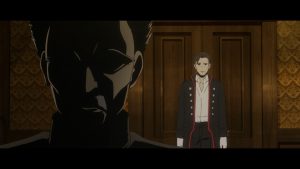 I don’t know where this is headed exactly, but I expect it’s to some very dark places (fittingly enough). The idea of heroes and villains in Mars Red is not a simple one, and humanity may be a concept that lends itself to more than one definition. The execution continues to be excellent – stuff like the bagpipe track over Nakajima’s recollections and the presentation of the Shimanrokusennichi (“Day of 46,000 Blessings”) festival at Senso-ji just add to the immersive atmosphere of the series, which is doing a wonderful job making the Tokyo of 1923 come to life. This is really high-level stuff all around, even if pretty much no one seems to be noticing. Every season seems to have at least one series like that, and this time around it’s Mars Red.
I don’t know where this is headed exactly, but I expect it’s to some very dark places (fittingly enough). The idea of heroes and villains in Mars Red is not a simple one, and humanity may be a concept that lends itself to more than one definition. The execution continues to be excellent – stuff like the bagpipe track over Nakajima’s recollections and the presentation of the Shimanrokusennichi (“Day of 46,000 Blessings”) festival at Senso-ji just add to the immersive atmosphere of the series, which is doing a wonderful job making the Tokyo of 1923 come to life. This is really high-level stuff all around, even if pretty much no one seems to be noticing. Every season seems to have at least one series like that, and this time around it’s Mars Red.


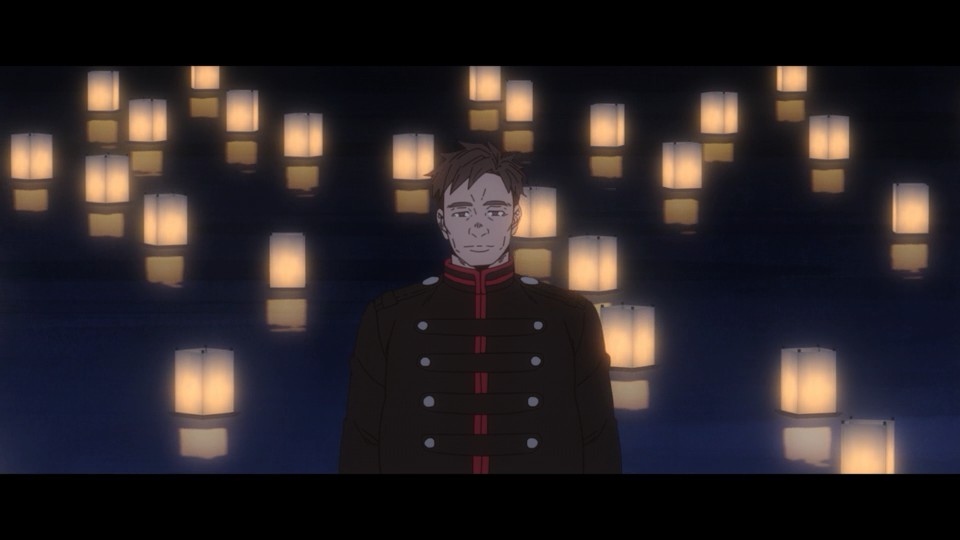
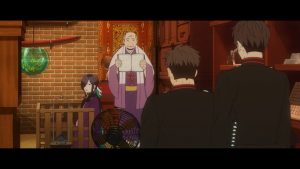
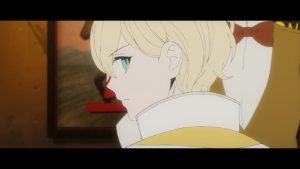

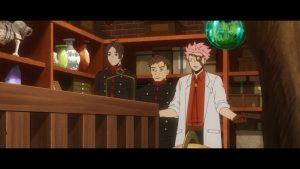
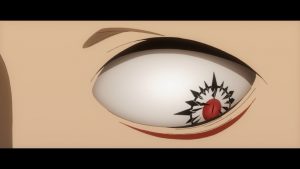
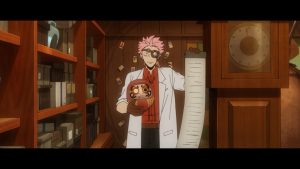
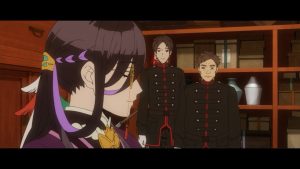









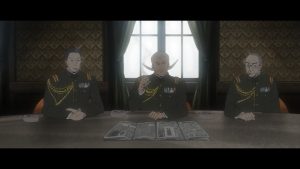
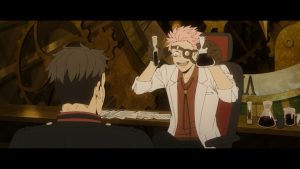





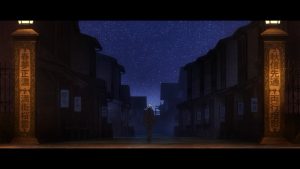







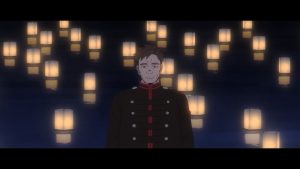

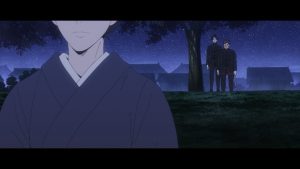
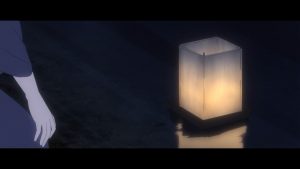



Leily
April 20, 2021 at 10:19 pmEnzo, what was your take on Donten no Warau (if you completed watching it)? Apparently the mangaka’s writing the Mars Red manga adaptation.
Guardian Enzo
April 20, 2021 at 10:48 pmHad its moments. Not a huge fan but I liked it enough to finish it.
Snowball
April 21, 2021 at 12:07 amAnything that steers away from bishounen vampires is good and this is excellent material. I loved the sincerity of the husband and wife scene.
Miyu Fan
April 23, 2021 at 6:05 pmI cried so hard on the husband and wife scene, so beautiful with the poems and Obon in the background. Even in Episode 2 I felt sad about the vampire couple. Somehow for being the most powerful military weapon (allegedly), the vampires are the most pitiful existence in the series.